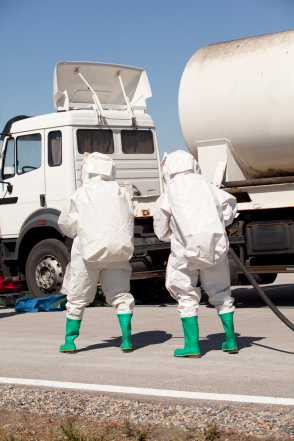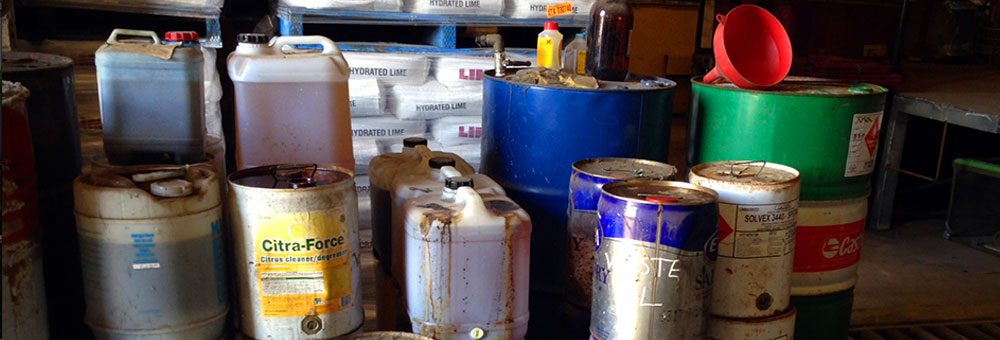Leading Liquid Waste Disposal Melbourne: Trusted Services for Appropriate Waste Monitoring
Leading Liquid Waste Disposal Melbourne: Trusted Services for Appropriate Waste Monitoring
Blog Article
Comprehending the Comprehensive Process of Fluid Garbage Disposal: Finest Practices and Environmental Influence Factors To Consider
The monitoring of liquid waste disposal is a multifaceted problem that calls for an extensive understanding of numerous ideal methods and their associated ecological influences. From the types of fluid waste generated to the techniques employed for collection, treatment, and final disposal, each step plays an essential role in protecting communities and public wellness.
Types of Fluid Waste
Comprehending the numerous kinds of liquid waste is vital for reliable administration and disposal methods. Fluid waste can be generally classified right into numerous types, each needing distinct handling and treatment techniques.
Industrial liquid waste commonly consists of unsafe materials, including heavy steels, solvents, and chemicals, produced during making processes. These wastes require rigorous regulatory conformity to safeguard human wellness and the setting. Domestic liquid waste mostly describes wastewater created from houses, consisting of sewer and greywater, which, although much less harmful, can still position substantial threats if improperly handled.
Agricultural fluid waste, consisting of overflow from farms, commonly contains fertilizers and chemicals that can cause environmental deterioration if not dealt with appropriately. Clinical fluid waste, created from medical care centers, consists of polluted liquids such as physical fluids and chemicals, calling for specialized disposal approaches to avoid infection and environmental contamination.
Last but not least, oil and oil waste, commonly generated by dining establishments and vehicle sectors, can create serious clogs in drain systems if not managed correctly. Comprehending these categories helps with targeted strategies for therapy, compliance with regulations, and reliable disposal approaches, eventually promoting ecological sustainability and public wellness safety.

Collection Methods
Reliable collection approaches are important for the appropriate management of fluid waste, ensuring that it is collected securely and successfully before therapy or disposal. Numerous strategies are used depending on the type of liquid waste produced, the volume, and the specific qualities of the waste.
One typical method is the usage of specialized collection storage tanks or sumps, which are created to catch fluid waste at the resource. These systems commonly include pumps that promote the transfer of waste to larger storage space containers or therapy facilities. Furthermore, mobile collection systems outfitted with vacuum cleaner technology are used in situations where waste is produced periodically or in hard-to-reach areas.
For industrial settings, closed-loop systems can successfully minimize spills and leaks, allowing for the recuperation and reuse of liquid waste. It is likewise important to train workers on proper collection procedures to alleviate risks associated with harmful materials.
Moreover, executing routine maintenance timetables for collection devices makes sure ideal performance and safety. The assimilation of sophisticated tracking systems can enhance collection performance by offering real-time information on waste levels and possible threats. Overall, efficient collection approaches are fundamental to lasting liquid waste management practices.
Treatment Procedures
Treatment processes play an essential duty in the monitoring of liquid waste, changing possibly hazardous materials right into multiple-use sources or safe effluents - liquid waste disposal. These processes can be extensively classified into physical, chemical, and organic methods, each customized to address specific contaminants existing in the waste stream
Physical therapy approaches, such as sedimentation and filtering, job by removing put on hold solids and particulate issue. These methods are typically the initial step in the therapy chain, properly reducing the load on subsequent processes. Chemical treatments involve the usage of reagents to reduce the effects of dangerous materials, speed up hefty steels, or oxidize natural contaminants, consequently enhancing the safety and security of the effluent.
Biological treatment processes, consisting of activated sludge systems and anaerobic food digestion, take advantage of the all-natural capacities of microorganisms to deteriorate organic issue. These approaches are particularly effective for wastewater consisting of naturally degradable toxins. Advanced treatment technologies, such as membrane purification and progressed oxidation procedures, are progressively utilized to achieve greater levels of purification.
Integrating a mix of these treatment techniques not just makes sure compliance with regulatory criteria but additionally promotes ecological sustainability by recouping beneficial sources from fluid waste.
Disposal Options
Exactly how can organizations make certain the safe and liable disposal of fluid waste? Efficient disposal options are essential for safeguarding public health and wellness and the setting. The key approaches include land disposal, treatment, and incineration complied with by discharge into municipal wastewater systems.
Land disposal involves the careful containment of liquid waste in marked land fills, guaranteeing that it does not leach into bordering soil or water. Incineration, on the other hand, topics liquid waste to heats, converting it right into ash and gases, which need proper filtering to lessen emissions. This method appropriates for harmful wastes that can not be treated through standard means.
In instances where liquid waste can be treated, organizations may go with chemical or biological treatment processes to reduce the effects of dangerous components prior to releasing the treated effluent right into municipal systems. This path typically straightens with regulative demands, ensuring that the effluent fulfills safety requirements.
Eventually, companies should carry out detailed evaluations of each disposal option to establish its stability, thinking about variables such as waste structure, regulative compliance, and possible risks to More hints wellness and the atmosphere. By selecting proper disposal approaches, organizations can add to a responsible waste management approach.
Ecological Impact
The ecological influence of fluid waste disposal is a crucial factor to consider for companies looking for to reduce their eco-friendly impact. Furthermore, the discharge of neglected or inadequately treated waste right into surface waters can result in eutrophication, leading to oxygen depletion and the subsequent death of fish and various other organisms.

To minimize these effects, companies should embrace best practices such as carrying out rigorous waste therapy the original source procedures, advertising recycling and reuse, and sticking to regulative requirements. By taking a positive strategy to fluid waste monitoring, entities can considerably lower their ecological footprint while supporting sustainable growth goals. Ultimately, a thorough understanding of the ecological influences related to liquid garbage disposal is important for educated decision-making and responsible stewardship of natural deposits.
Conclusion
Effective administration of fluid waste is crucial for protecting environmental integrity and public health. By embracing ideal practices in disposal, therapy, and collection, along with adherence to regulative requirements, the capacity for harmful contamination of environments can be dramatically minimized. Continual improvements in modern technology and procedures add to sustainable waste management initiatives. Eventually, a detailed understanding of liquid waste disposal not only reduces environmental influences however additionally promotes a dedication to responsible source management and ecological stewardship.
The monitoring of fluid waste disposal is a complex problem that requires a comprehensive understanding of various best methods and their associated environmental influences. From the types of fluid waste generated to the approaches employed for collection, treatment, and final disposal, each action plays a critical role in safeguarding communities Discover More Here and public health.The ecological impact of liquid waste disposal is a crucial consideration for organizations seeking to decrease their ecological impact. Eventually, a thorough understanding of the ecological influences connected with liquid waste disposal is essential for notified decision-making and accountable stewardship of natural sources.
Inevitably, a thorough understanding of liquid waste disposal not only reduces environmental influences yet additionally promotes a commitment to responsible resource monitoring and environmental stewardship.
Report this page